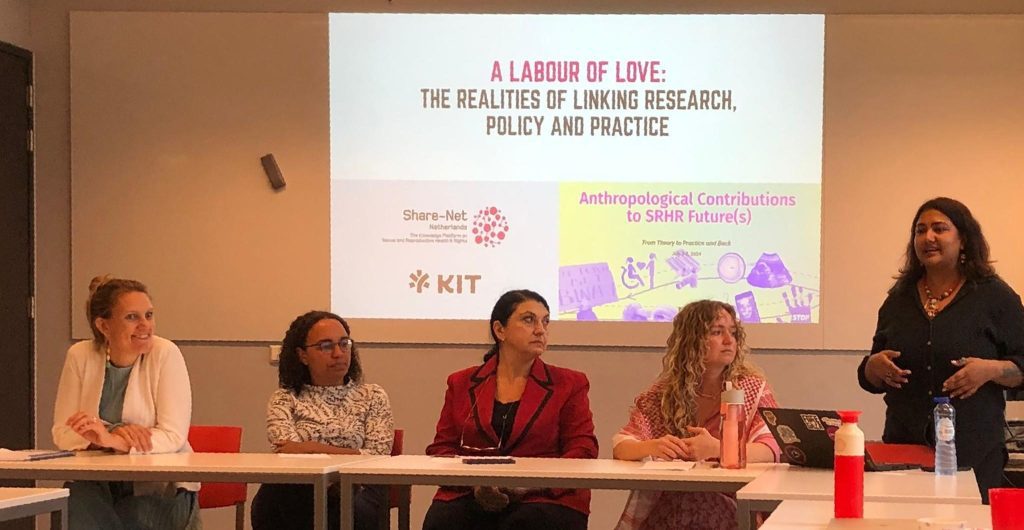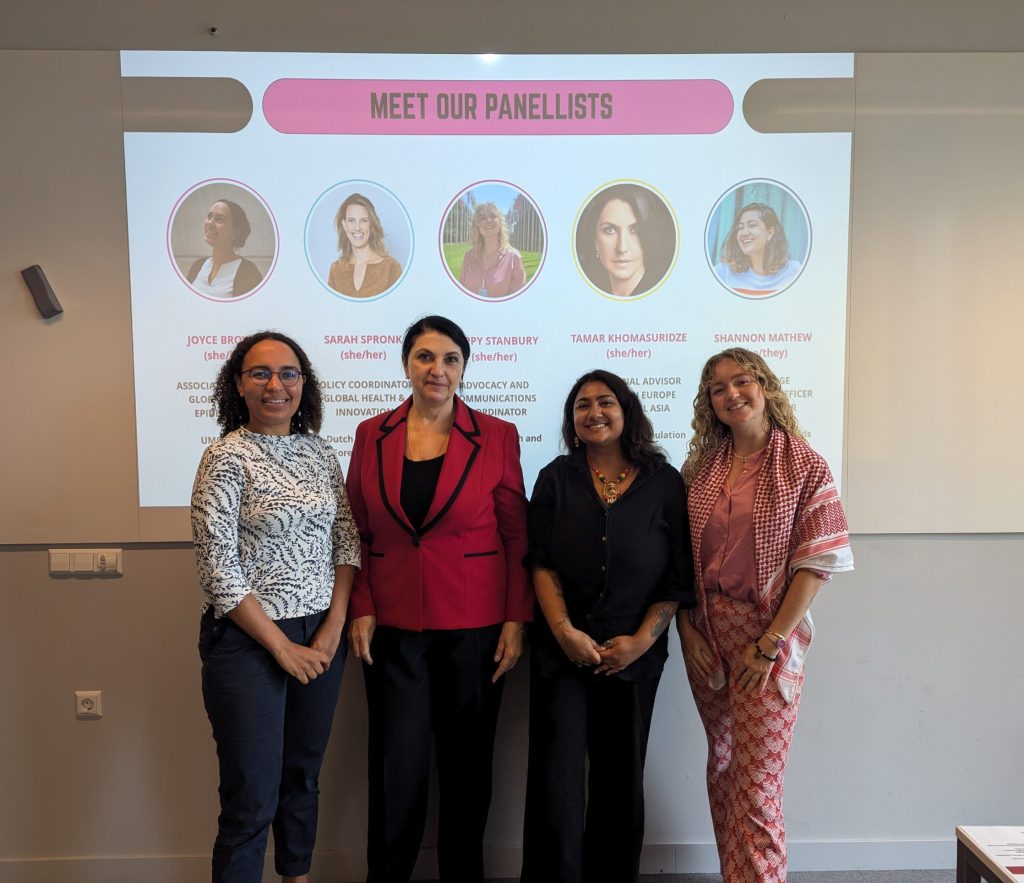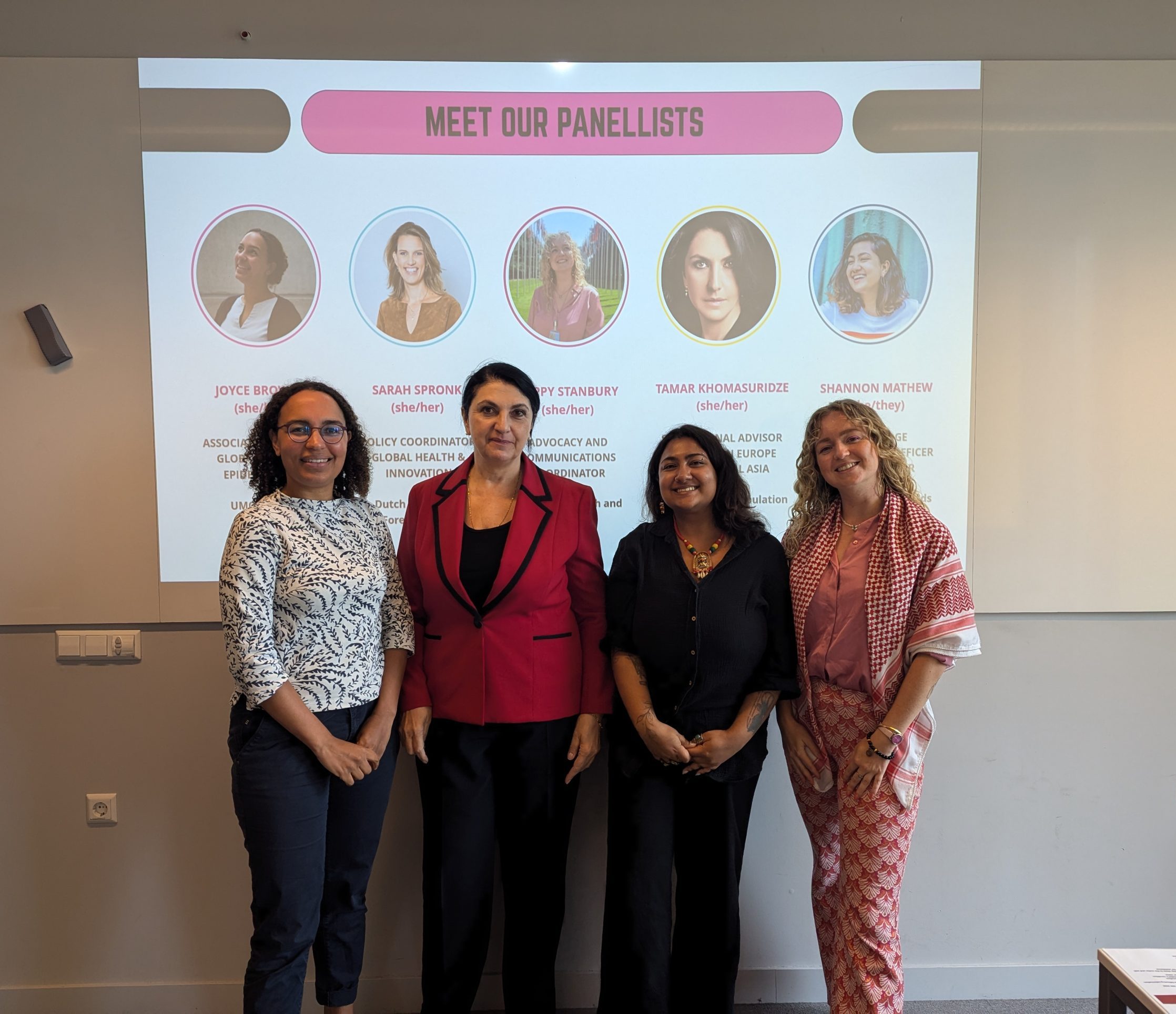The Realities of Linking SRHR Research to Policy and Practice: Panel at UvA Anthropological Conference
On July 5th 2024 at the From Theory to Practice and Back: Anthropological Contributions to SRHR Futures Conference, Share-Net Netherlands organised a panel “A Labour of Love: The Realities of Linking Research, Policy, and Practice.” Held at the University of Amsterdam’s Roeterseiland Campus, the panel brought together experts from diverse sectors to discuss the pressing need for effective collaboration in sexual and reproductive health and rights (SRHR). Moderated by Shannon Mathew, Knowledge Management Officer at Share-Net Netherlands, the panel aimed to address the challenges of integrating research, policy, and practice in advancing SRHR agendas amidst rising global opposition and humanitarian crises.
The session opened with an introduction to Share-Net Netherlands and its initiatives in linking knowledge to action, including their Communities of Practice and MoFA SRHR Partnerships, highlighting the importance of creating sustainable spaces for evidence-based collaboration and learning, setting the tone for the panel discussion. The four distinguished panelists represented a wide array of expertise: Dr. Joyce Browne, an Associate Professor of Global Health and Epidemiology at UMC Utrecht; Sarah Spronk, Policy Coordinator for the Dutch Ministry of Foreign Affairs; Poppy Stanbury, Advocacy and Communications Coordinator for CHOICE for Youth and Sexuality; and Dr. Tamar Khomasuridze, SRH Regional Advisor for Eastern Europe and Central Asia at UNFPA. Together, they delved into the mechanisms of knowledge exchange, the challenges of influencing policy, and the role of community-building in shaping the future of SRHR.

The discussion explored several critical themes. Panelists emphasised the importance of platforms that facilitate multisectoral knowledge exchange grounded in evidence. Dr. Browne highlighted how equitable partnerships and localised solutions can address global health inequities, while Sarah Spronk underscored the urgency of translating research into actionable policies, particularly in times of crisis. Poppy Stanbury shared insights from her work with youth-led SRHR advocacy, stressing the value of intersectional approaches. Dr. Khomasuridze reflected on UNFPA’s “Bridging Science and Policies” strategy, which has fostered intercountry cooperation and linked research to policy across 17 countries.
The panel also addressed the significant challenges facing the SRHR field, including misinformation, political opposition, and resource constraints. Panelists noted the increasing polarisation of global discourse and the difficulty of maintaining solidarity among stakeholders. They advocated for collaborative approaches that navigate differences without compromising the SRHR agenda. Poppy Stanbury shared “Organise rather than antagonise” which became a recurring theme and rallying cry for the remainder of the conference, with calls for strengthening science literacy, building trust in evidence-based practices, and fostering cross-movement solidarity.
In the final segment, panelists looked to the future of SRHR, discussing how young activists and researchers can build on the work of previous generations. They encouraged the audience to embrace inclusive, intersectional approaches that address contemporary issues such as climate justice, digital rights, and decolonisation.
The panel closed with a note of optimism, emphasising the importance of resilience and collaboration in advancing SRHR. There was much gratitude to the University of Amsterdam for creating a transdisciplinary platform such as this conference, and for the panelists and attendees for their contributions to the discussion. As Share-Net Netherlands continues its work in linking research, policy, and practice, this panel served as a reminder of the collective effort required to navigate the challenges and seize opportunities in the SRHR field.

